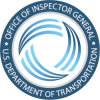What We Looked AtIn 2013 and 2014, reports from the Government Accountability Office (GAO) and the Massachusetts Institute of Technology (MIT) documented a disproportionate decline in commercial air service to smaller communities. Since that time, there have been concerns that small- and medium-sized communities continue to have limited access to the National Airspace System. The lack of a recent analysis, as well as major changes in the industry, prompted our office to update the GAO and MIT reports. Accordingly, our objective for this self-initiated audit was to detail recent trends in the aviation industry, particularly as they relate to small- and medium-sized communities.What We FoundCompared to larger metropolitan areas, smaller communities have experienced disparate effects from several recent aviation industry trends. For example, departures declined in larger communities by roughly 12 percent and in smaller communities by about 34 percent. Connectivity--the ability to connect to and move throughout the national air system--declined by 16 percent in smaller communities, double the rate in larger communities; however, data limitations hindered our analysis of delays and cancellations. Similarly, competitive conditions improved in larger communities, but grew worse in smaller communities, where the cost to fly was also greater. Finally, we found that some airlines have dramatically increased their revenues from booking charges and other ancillary fees. However, the Department of Transportation (DOT) does not collect adequate data on ancillary fees, which reduces its ability to fully assess competition in the industry. Also, ancillary fees are not subject to the excise tax that funds the Airport and Airway Trust Fund (AATF). We conservatively estimate that certain carriers' use of booking fees as a revenue source reduced AATF revenues by $60.6 million in 2019 alone.Our RecommendationsWe made three recommendations to address DOT's data shortcomings and improve departmental clarity on the impact of ancillary fees on AATF receipts. The Department concurred with one of our three recommendations.
Open Recommendations
| Recommendation Number | Significant Recommendation | Recommended Questioned Costs | Recommended Funds for Better Use | Additional Details | |
|---|---|---|---|---|---|
| 2 | Yes | $0 | $0 | ||
| The Office of Aviation Analysis develop a process to regularly collect, maintain, and use information from airlines' website disclosures of all fees charged for optional or ancillary services as a screening mechanism for significant changes in these fees. For each mainline carrier and posted fee, this information should include-but not necessarily be limited to-identification of the type of each service and its price (or price range). | |||||


